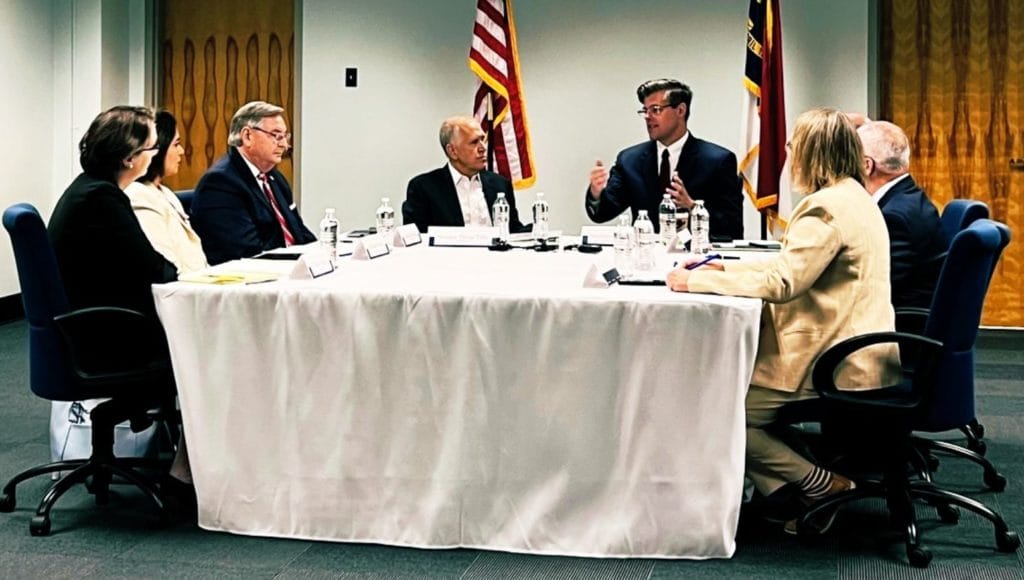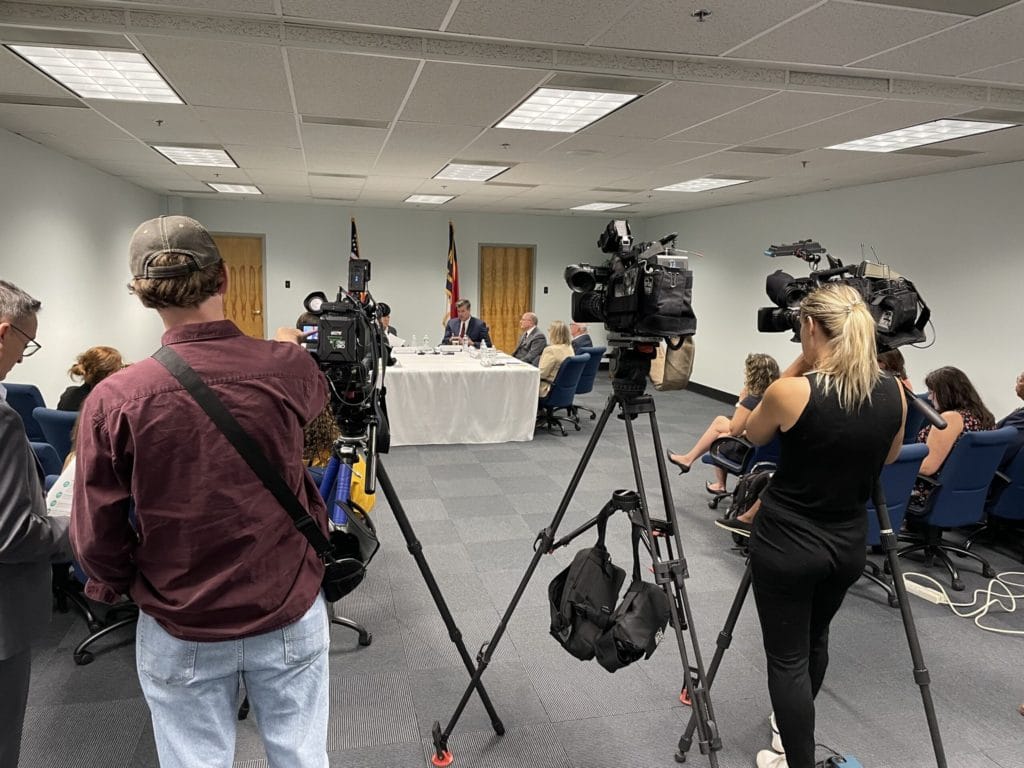TROSA Chief Program Officer Karen Kelley was honored to be a part of a roundtable discussion on mental health care and the substance abuse crisis. North Carolina Senator Thom Tillis hosted the discussion with state officials and other leaders in the fields of mental health and substance use disorder care. Kelley was a founding member of the Appalachian Regional Commission’s Substance Abuse Advisory Council, where she worked as part of a 24-person team to help create recommendations for recovery ecosystems.
Other leaders participating in the roundtable discussion were Kody Kinsley, Secretary of the North Carolina Department of Health and Human Services; Dr. Timothy Reeder and Senator Jim Burgin from the NC General Assembly; Dr. Robyn Jordan from the NC Medical Society; Stephen Lawler from the NC Healthcare Association; and Dr. Ripple Sekhon with the United States Department of Veteran Affairs.
The goal of the roundtable was to discuss collaborative and community-based ways to improve prevention strategies and access to evidence-based treatment and services. The meeting comes after the one-year anniversary of the Bipartisan Safer Communities Act (BISCA) being signed into law. BISCA allocates historic levels of funding to mental health services. In an important and wide-ranging discussion, panelists discussed current challenges and ways to improve access to care.
“TROSA serves as a unique part of the continuum of care for people with substance use disorder and co-occurring disorders,” shared TROSA’s Karen Kelley. “As a therapeutic community, we harness the power of positive peer relationships to create a safe and supportive place for people to come and change their lives for the better.
“At no cost to them, and with no need for insurance coverage, residents at TROSA are getting evidence-based drug treatment as well as job training, health care, mental health care, transportation, housing, food, educational support, and more.
“As a non-profit organization, we are grateful for the supportive partnerships with the General Assembly and other government agencies, such as with Secretary Kinsley at the North Carolina Department of Health and Human Services. Also, we are grateful for the many community partnerships that allow us to provide such a comprehensive array of services.”


